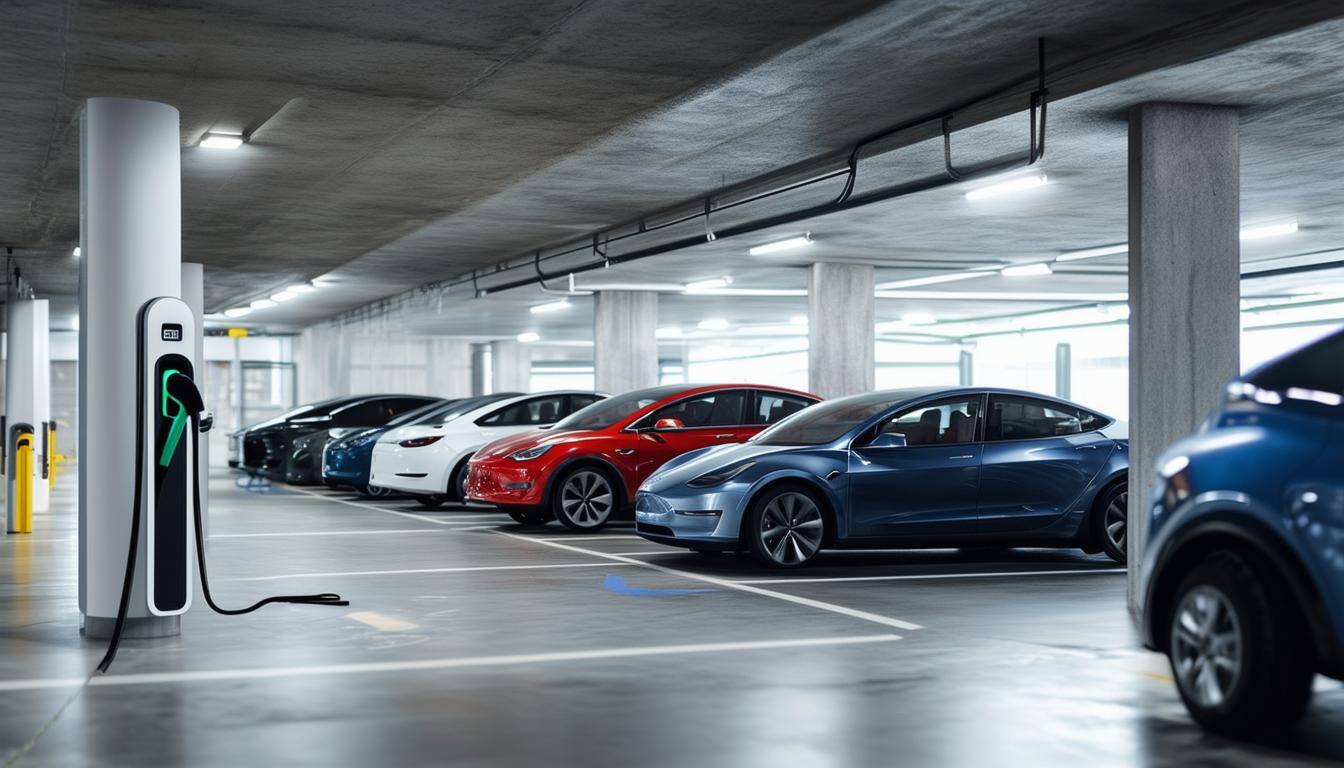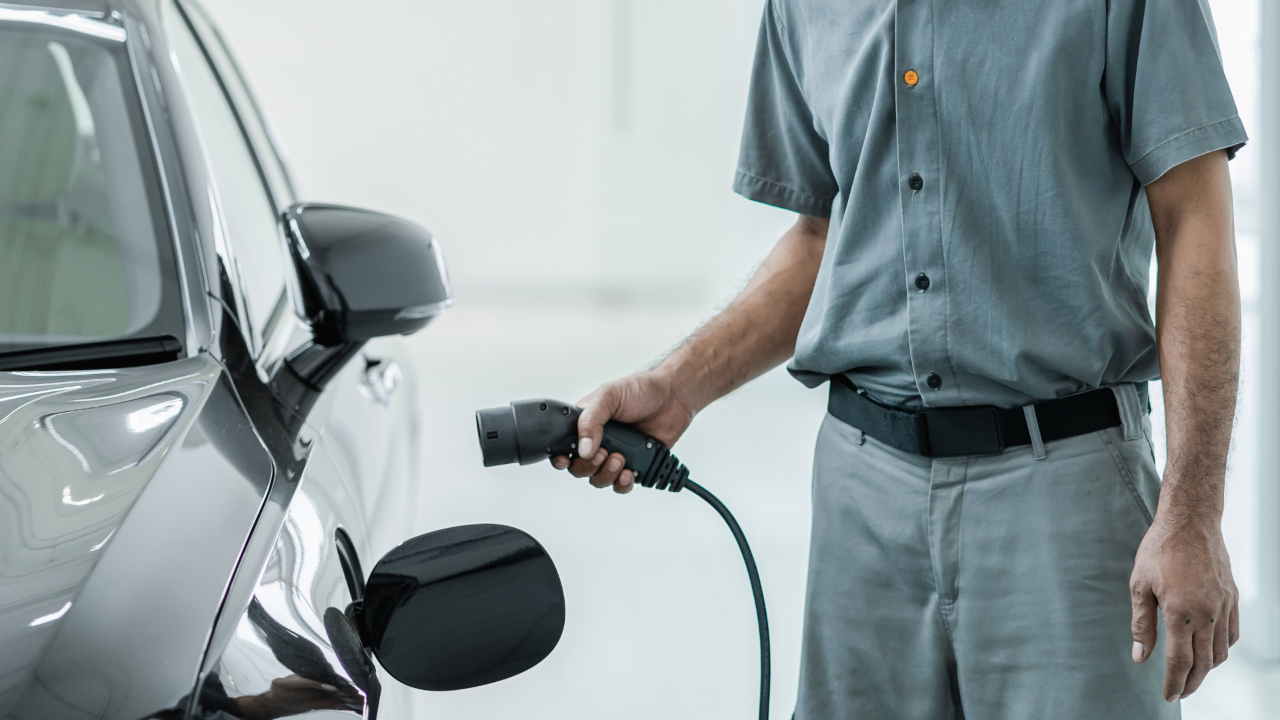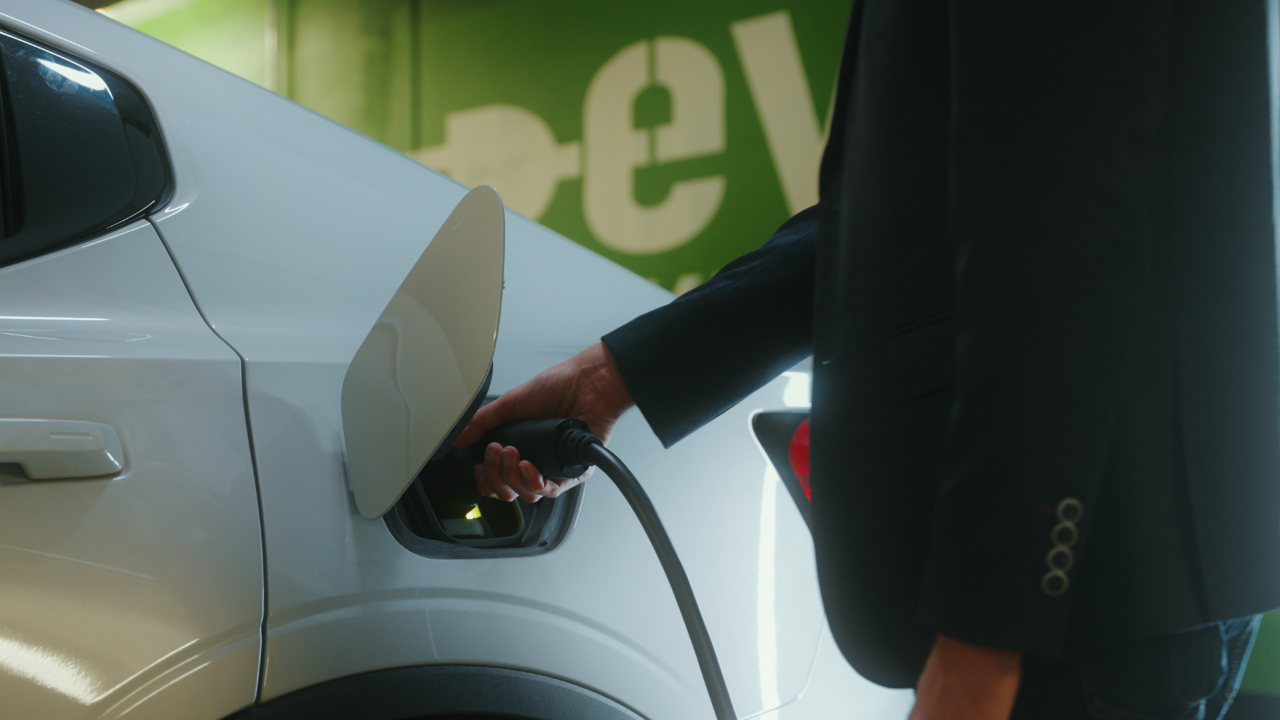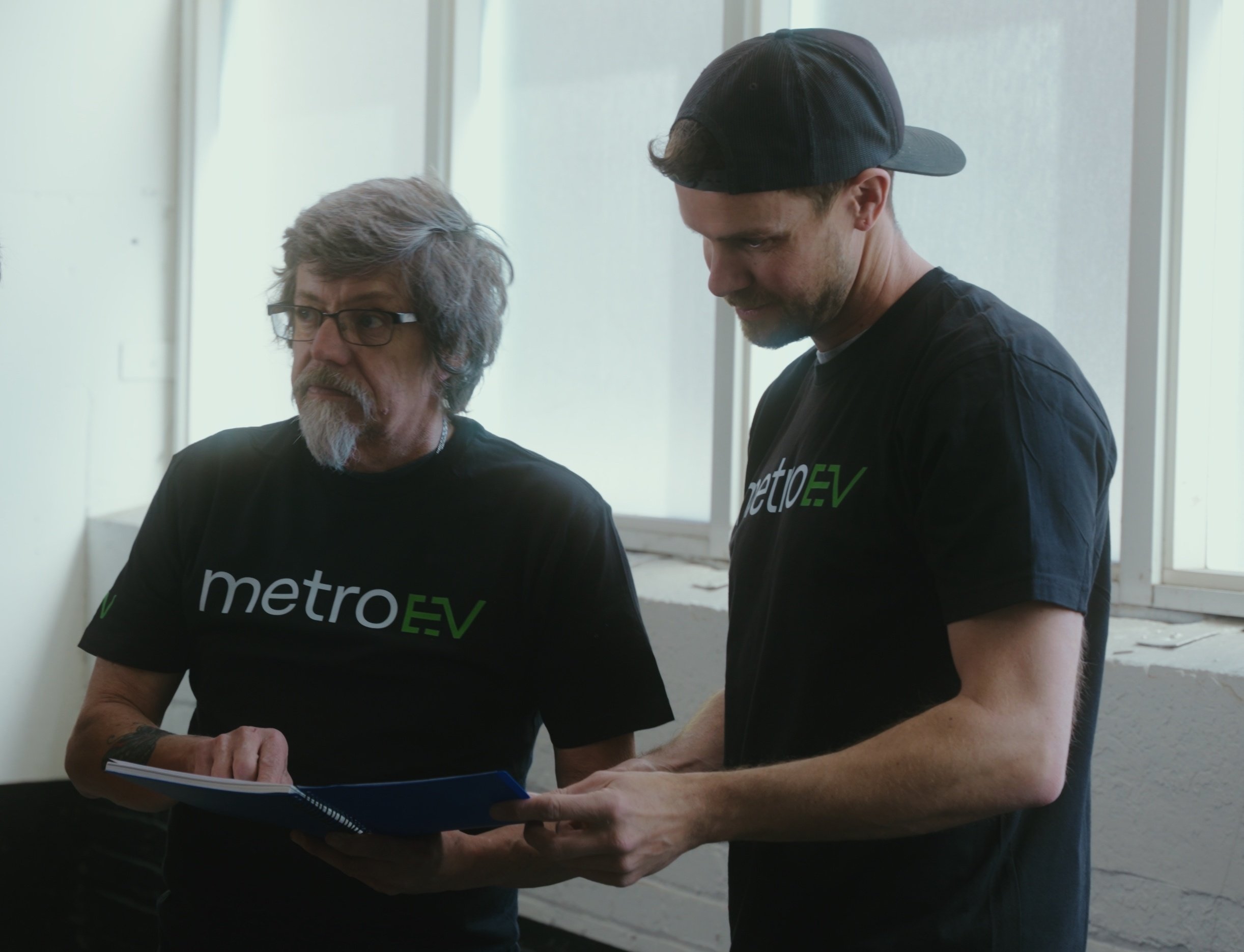One of the biggest complaints electric car owners have is the extended amount of time it takes to fully recharge their electric car’s batteries. Depending on your electric vehicle and the EV charger you use, you may find yourself waiting over 12 hours to fully charge your vehicle.
However, there are a few ways EV owners can make their electric cars charge faster and even save money in the process. Whether you charge at a public car charging station or charge at home, it’s easier than you may think to get your EV to charge faster. If you’ve ever wondered how fast to charge electric car batteries or what it takes to quick charge electric car models, the good news is there are solutions available today.
What are the different EV charger types?
Before learning how to quick charge your electric vehicle faster, it’s important to understand the different types of EV chargers.
Level 1 EV Chargers
Level 1 EV chargers draws power through a standard 120 V AC household outlet, with no extra installation or upgrade needed. This is the slowest option to charge your electric vehicle and requires extensive hours of charging time in order to fully charge your car.
Level 2 EV Chargers
Level 2 chargers uses a 240 V plug and require a dedicated circuit breaker (based on your chargers’ Amperage). The Level 2 charging speed is significantly faster than Level 1 EV chargers. This is the most popular type of charger as it is widely used for home, workplace, and public charging.
DC Fast Chargers
DC fast chargers, also known as Level 3 chargers, provide charging through a 480 V input and requires a special socket in your electric vehicle (CCS/CHAdeMO). Depending on your vehicle, Level 3 charging stations can provide an 80% charge in less than an hour. For drivers looking for an electric car fast charge, DC fast chargers are the go-to option. You will typically find DC fast chargers at major highways stops, businesses, and retail locations that experience high levels of traffic.
Learn more:
EV Chargers Types: Difference Between Level 1, 2 and 3 Charging
Level 3 EV Charger: Everything You Need to Know About DC Fast Chargers
How do I quickly charge my electric car?
1. Upgrade Your Electric Car Charging Station
If you just purchased your electric vehicle, chances are you may be using a Level 1 charger that charges your electric vehicle through a standard electrical socket. Unfortunately, many EV owners may need to charge their cars anywhere from 8 to 12 hours in order to reach a full charge from a depleted battery. It provides 6-8km/hour. However, upgrading to a Level 2 charger at your home or workplace can significantly reduce your charging time. Level 2 chargers offered by metroEV can provide up to 32km/hour.
Depending on your vehicle, these electric car stations can charge your car from fully depleted to fully charged in 2-10+ hours, with most vehicles being fully charged in just a couple of hours. A Level 2 charger will charge nearly 3 to 5 times faster than a standard Level 1 charger and does not require any unreasonable demand for power from your building’s existing electrical infrastructure. For anyone asking how fast to charge electric cars at home, a Level 2 charger is the recommended option.

Additionally, many local governments and utilities are now offering customers incentives to install Level 2 chargers in their homes or businesses. Level 2 chargers can also be more energy-efficient than Level 1 chargers and are ideal for multi-residential buildings.
EV fast-charging stations, otherwise known as DC fast chargers or Level 3 chargers, can also help save consumers a great deal of time when it comes to charging their electric vehicles. These EV charging stations are ideal for high-traffic areas like businesses, retail locations, and highway stops and are perfect if you need to charge quickly for car trips on the go. When compared to Level 2 chargers, a DC fast charger may offer 10-30 times the charging speed depending on your vehicle. In other words, 15 minutes of charging at a Level 3 station can provide the same charge as 5 hours at a Level 2 station.
Related articles:
What Is The Best EV Charging Solution For Your Condo Building?
Private or Shared EV Chargers? How to Choose the EV Charging Solution for Your Condo Building
2. Charge When It's Warmer
Electric vehicle owners could face longer charging times when temperatures drop. Even with an electric car fast charge option, it will take a longer period of time to charge your vehicle in colder climates due to the fact that colder temperatures will impact the electrochemical reactions within your battery.
Under some of the coldest conditions, researchers have found that charging in the cold could be roughly three times slower when compared to charging in warmer weather at a Level 3 charger. Charging your car during the daytime when it may be warmer can help increase the speed at which your electric vehicle charges. However, charging costs during a warmer time in the day or during peak hours will be more expensive when compared to charging at night when it may be colder.
Related articles:
EV Range Loss in Cold Weather: Tips on How to Maximize EV Range in Cold Weather
Charging EVs in Cold Weather: Improve Electric Car Charging in Winter
3. Warm Up Your Batteries
Warming up your electric car’s batteries can help to lower the time it takes to charge your car. Plugging into a standard Level 1 charger can help provide the needed power to precondition the car before you use a Level 3 fast charger, giving you a faster session and ensuring you can quickly charge your electric car more efficiently.
Most Level 2 chargers, however, do not require you to warm up the car due to the lower power rating they have when compared to a Level 3 fast charger.
Other factors to consider
Alongside the tips above, there are some other factors EV owners must consider when it comes to the time it takes to charge their electric vehicle. For instance, you can only charge an EV’s battery at the maximum charge rate the vehicle accepts. As an example, if your EV’s maximum charge rate is 7kW, you will not be able to charge your car faster by using a 22kW charger.
Additionally, the speed at which your car charges will also be determined by the maximum charging rate of the charger you are using. If your vehicle can charge at 11kW but you only have access to a 7kW charger, you will only be able to charge at 7kW.
Related article:
Understanding kW vs. kWh for EV Charging
contact us
Thinking of installing an EV charger? Get a custom quote today.
Have questions? Want a quote? Fill out this form below and our team will get back to you shortly.
How much does it cost to charge an electric car?
The cost to charge an electric car will vary on a multitude of factors, with one of the most important being the cost of electricity in your area. The cost of electricity in any given area can vary greatly, based on demand and peak hours. Thus, charging your EV overnight is not only cheaper but also greener in most scenarios.

When you charge at night, you will be able to take advantage of significantly lower energy prices, since you may be using off-peak electricity that is generated by cleaner energy sources. During the daytime, however, natural gas or other forms of energy may be required to meet an area’s electrical demand, which can cause charging your EV to become more expensive.
Commercial EV charging station costs may be much higher than charging at home since most commercial EV stations are used during the daytime when electricity is at its highest demand. Another advantage of installing a home charger is the far lower cost of residential electricity when compared to the cost of commercial electricity. In Ontario for instance, it may be far less expensive to charge at home than at a public charging station.
Related articles:
Understanding EV Charging Costs: A Breakdown
How do I choose the best electric vehicle charger?
If you’re looking to install a Level 2 charger at home or a Level 3 DC fast charger at your business, metroEV can help. Our team specializes in setups that let you quickly charge your electric car while saving money on long-term charging costs.
If you decide to take advantage of significantly lower residential electricity costs, you may be considering installing a Level 2 charger. metroEV offers EV owners access to Level 2 electric charging stations that can be installed in your own home or office without any significant modifications to your electrical system. Having a Level 2 EV charger installed in your home or workplace can provide convenient, energy-efficient and reliable charging.

Thanks to a multitude of government programs and recent advancements in electric vehicle charging technology, charging your EV can take less time than you may think and cost far less than you may expect.
If you are looking to install a Level 2 charger in your home or a Level 3 fast charger at your business or workplace, metroEV can help. Our team will evaluate your location, gain approvals, and provide you with ongoing support throughout your EV ownership.
Related article:
Best EV Charging Solutions for Your Condo
Get a quote today!
metroEV can help you assess, plan and install EV charging stations for apartment buildings, condos, businesses and more. Get in touch and our representatives can help build a solution that aligns with your unique EV charging goals all while ensuring a smooth transition. Contact metroEV to get an EV charging quote.
Explore:
EV Charging Stations for Commercial Buildings and Businesses
Completed EV Charger Installations
Learn more:
Complete Guide to EV Charging Stations and How They Actually Work

AUTHOR
Shai Sinai
Shai is the Vice President of Sales at metroEV, specializing in electric vehicle charging station installations for multi-residential, commercial and public properties. With hands-on experience across the entire process—from site assessments and EV Ready planning to infrastructure design and installation—Shai brings deep industry knowledge and practical insight to every project.








